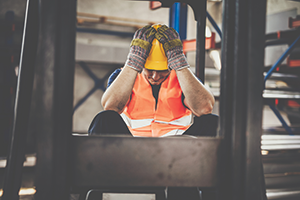Construction industry collaborates during COVID-19

|
Since the COVID-19 pandemic took hold in the U.S., many construction industry professionals have noticed a move toward more collaboration among companies, according to www.constructiondive.com.
Competing general contractors are sharing information, especially about ways to keep workers safe during the pandemic; posting photos, best practices and toolbox talks on their websites; and sharing ideas on webinars and conference calls to offer solutions that can benefit the industry. They are working closely with owners, subcontractors and suppliers to stay updated regarding the latest developments and try to resolve shared problems.
During a recent COVID-19 webinar sponsored by Destination Medical Center in Rochester, Minn., Mike Benike, executive vice president at Benike Construction, Rochester, said the collaboration has been key to the construction industry’s quick reaction to keeping job sites healthy and operational during the crisis.
“It’s amazing that only little more than a month ago, many construction sites did not have anything different in place, and now the procedures are completely different and continuing to change every day,” Benike said.
Panelist Troy Blizzard, vice president of operations at Mortenson, Minneapolis, said he has never seen such collaboration among the contractors in his market.
“It’s absolutely been a theme of all this that we’re all in this together and we’ve got to share best practices,” Blizzard said. “It’s all about ‘What are you doing and what have you seen to help business?’ in what is usually a very competitive environment.”
Associations also have played a crucial role in promoting collaboration and unity of the industry during the pandemic, including providing guidelines and helping their members fully understand local, state and national mandates and legislation.
To help members and the roofing industry manage the COVID-19 crisis, NRCA has provided valuable information and resources, including Occupational Safety and Health Administration, legal and insurance guidance, at www.nrca.net; actively lobbied on behalf of the industry to structure federal legislation to help small-business owners survive the crisis; sent a letter to President Trump urging the administration to recognize roofing as an essential business; and issued surveys to find out what member roofing contractors are experiencing to better assist them and the industry.
Phil Thoden, president of the Austin, Texas, chapter of the Associated General Contractors of America, says the value of these associations, which have always been focused on collaborative problem-solving among members, is more important than ever.
“When things are going fine, people might take a group like that for granted,” Thoden says. “But when they really need it, they say ‘I get the value proposition now.’”
U.S. construction backlogs are smaller
As U.S. construction activity gradually resumes following the height of COVID-19 lockdowns, some projects in companies’ backlogs have been canceled, according to Bloomberg Law.
The Associated Builders and Contractors’ construction backlog indicator recently fell to its lowest reading since 2012.
“Heading into the crisis, contractors probably had a 12-month or better backlog, enough work to keep them busy throughout the year, maybe a bit more,” said John Mielke, president of ABC Wisconsin. “Right now, it’s just over seven months.”
Mielke said some projects on hold in Wisconsin, including food-processing plants and public projects, will not return. Public projects are being affected by local governments trying to “protect the tax revenue they have to provide essential functions.” Mielke said less than 5% of projects report customers are having funding problems.
In Louisiana, David Helveston, president and CEO of ABC Pelican, said maintenance projects have ramped up to about 80% to 90% of pre-pandemic levels. However, he said the biggest concern is capital-intensive projects, many of which are uncertain for the next 12-18 months.
Although construction is deemed essential in most U.S. states, builders and contractors have had to work at reduced capacity because of state governments’ COVID-19 prevention efforts.
Employers can help ease anxiety about returning to work

|
Throughout the U.S., construction workers are failing to show up for work because they are afraid they will pick up the virus and bring it home to elderly or immunocompromised family members, according to www.constructiondive.com. A recent Construction Dive survey found handling anxious employees is contractors’ biggest challenge of the pandemic so far, with 78% of respondents saying it’s one of the top ways the crisis has affected their business.
David Perecman, founder and lead trial attorney at The Perecman Firm, New York, says keeping employees engaged and reassured is key to keeping job sites open. Being proactive can help prevent the high rates of absenteeism many contractors are facing.
Perecman says contractors must ensure employees’ anxieties about job-site cleanliness and social distancing are addressed to help employees feel safe and reduce employer liability.
“Managers need to make provisions and provide rules that recognize those fears,” Perecman says. “They will need to be able to say they are prepared with future needs for personal protective equipment. They need to be able to show that they were, at a bare minimum, cognizant of the future need and took steps to address it.”
Many employers are creating safety protocols and ensuring the protocols are clearly communicated to employees, focusing on transparency so workers always are informed. Others are focusing on positive messages and interactions, providing breakfast and lunch for employees, and checking in to see how they are doing.
Still, some workers continue to struggle with high levels of anxiety during this unprecedented time. Tricia Kagerer, executive vice president of risk management at Jordan Foster Construction, El Paso, Texas, says it is important managers recognize signs of stress among team members, such as excessive worry, anger, loss of concentration and difficulty sleeping, because unchecked stress can lead to increased risk and injuries.
“A pandemic crisis is not normal; none of us has ever experienced anything like this in our lifetime,” Kagerer says. “We need to tell ourselves that it is OK not to feel OK. It is completely normal.”
As projects reopen, contractors face new challenges
Panelists at a recent Associated General Contractors of America webinar said despite the high U.S. unemployment rate, construction contractors are struggling to fill jobs as projects reopen, according to www.constructiondive.com.
Panelist Bob Majerus, vice president and general counsel for Hensel Phelps, Greeley, Colo., said various factors are causing issues, including enhanced unemployment benefits and fear of contracting COVID-19.
The federal Coronavirus Aid, Relief, and Economic Security Act, or CARES Act, which passed in March, supplements state coverage with an additional $600 per week—more than double the weekly maximum unemployment benefits in most states.
“We’re hearing from some workers: ‘When my unemployment money runs out, I’ll be happy to come back to work, but not until then,’” Majerus said. “They’re getting extra money every month, so they prefer to stay at home.”
Majerus said he mostly is seeing workers’ fear of contracting the virus affecting subcontractors’ workforces. He said the best thing construction firms can do to employ a steady flow of workers and subcontractors is to communicate their safety precautions and take immediate action when a COVID-19 case—or even a rumor of one—occurs.
Construction managers also are facing more Occupational Safety and Health Administration compliance complaints and an uptick in internal human resources disputes, which Majerus attributed to the fact that “there is tension everywhere these days, in our workforce, with our crafts and with our subcontractors.”
Cotney Construction Law offers free installer exams

|
Cotney Construction Law LLP, Tampa, Fla., has announced it will provide NRCA ProCertification® roof system installer performance exams free of charge for roofing professionals in the Tampa or Orlando, Fla., areas interested in testing for the asphalt shingle or thermoplastic NRCA ProCertification designation.
“We are excited to support NRCA’s efforts on increasing professionalism within the roofing industry,” says Trent Cotney, CEO of Cotney Construction Law.
NRCA ProCertification, NRCA’s national certification initiative, aims to create a competent, sustainable and high-performing roofing industry workforce. Experienced installers and foremen who demonstrate substantial roofing skills and knowledge can become certified by NRCA in specific roof system applications. To receive certification, candidates must pass an online exam and installers must also pass a practical hands-on test scored by a Qualified Assessor, who is trained and approved by NRCA to conduct NRCA ProCertification performance exams for roof system installers.
“As a Qualified Assessor, I look forward to assisting roof system installers who are interested in pursuing NRCA ProCertification,” says John Kenney, chief operating officer and technical director of Cotney Construction Law. “The program elevates the industry, and I am proud to be involved with it.”
Additional information about NRCA ProCertification is available at www.nrca.net/procertification. For more information about the free installer performance exams, email info@cotneycl.com.



